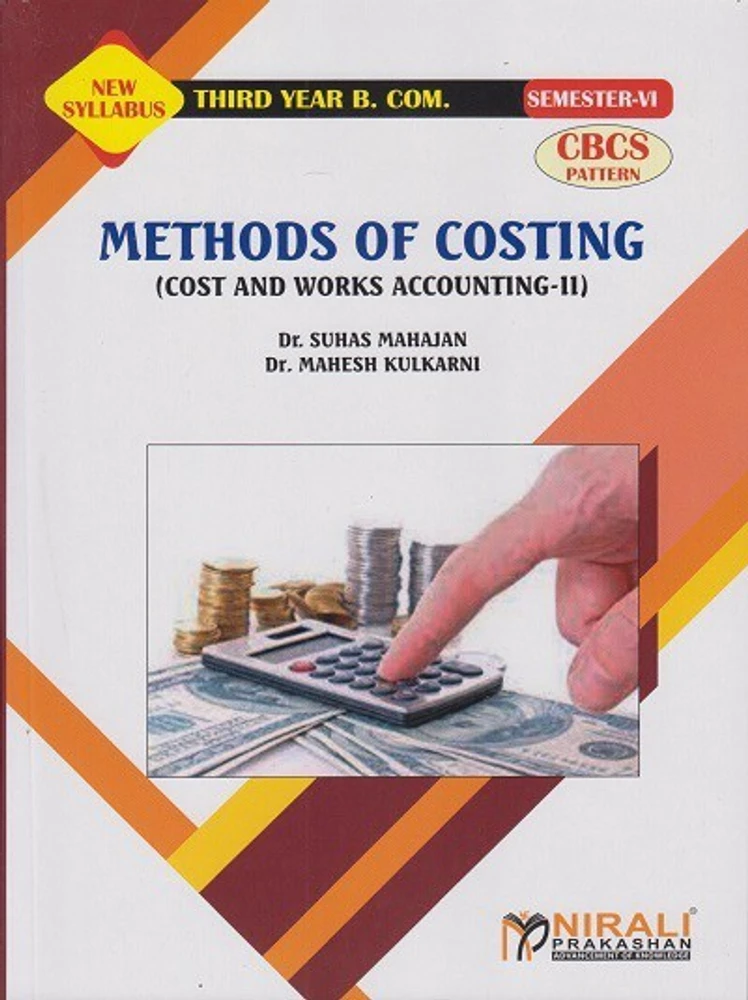Instructors
Commerce – Cost and works Accounting
Cost and Works Accounting is a branch of accounting that focuses on recording, analyzing, and controlling the costs associated with production and operations. It helps businesses determine the actual cost of products or services, manage resources efficiently, and make informed financial decisions.
Unlike financial accounting, which provides a broad overview of a company’s financial performance, cost accounting goes deeper into the internal costs of each process, department, or product. It includes cost classification, cost control, cost reduction, and budgeting.
This subject is especially useful in manufacturing and service industries where cost analysis and control play a vital role in profitability. By applying various methods and techniques, cost accountants help organizations minimize waste, improve productivity, and increase efficiency.
In summary, Cost and Works Accounting equips students with essential tools to manage costs effectively and contribute to better financial planning and operational performance in an organization.
Cost and Works Accounting is a branch of accounting that focuses on recording, analyzing, and controlling the costs associated with production and operations. It helps businesses determine the actual cost of products or services, manage resources efficiently, and make informed financial decisions.
Unlike financial accounting, which provides a broad overview of a company’s financial performance, cost accounting goes deeper into the internal costs of each process, department, or product. It includes cost classification, cost control, cost reduction, and budgeting.
This subject is especially useful in manufacturing and service industries where cost analysis and control play a vital role in profitability. By applying various methods and techniques, cost accountants help organizations minimize waste, improve productivity, and increase efficiency.
In summary, Cost and Works Accounting equips students with essential tools to manage costs effectively and contribute to better financial planning and operational performance in an organization.
Overview of Cost and Works Accounting
Cost and Works Accounting is a specialized branch of accounting that focuses on recording, analyzing, and controlling the costs associated with the production of goods or services. It plays a crucial role in internal management, enabling better planning, budgeting, and cost control.
1. Objective of Cost and Works Accounting
The main aim is to determine the cost of production accurately and to help management control costs, enhance efficiency, and make informed decisions regarding pricing, budgeting, and cost-saving.
2. Definition
Cost and Works Accounting is the process of collecting, classifying, recording, and analyzing all costs incurred in a business, particularly in manufacturing or production activities.
3. Key Features
- Helps in ascertaining product costs
- Assists in budgeting and cost control
- Provides data for decision-making and performance evaluation
- Useful for price fixation and cost reduction
4. Components of Cost Accounting
ComponentDescriptionDirect CostsCosts directly traceable to a product (e.g., raw materials, direct labor)Indirect CostsOverhead costs not directly traceable (e.g., rent, administrative expenses)Fixed CostsCosts that do not vary with production (e.g., salaries)Variable CostsCosts that change with production volume (e.g., materials)
5. Elements of Cost
- Material Cost – Cost of raw materials used in production
- Labor Cost – Wages paid to workers
- Overhead Cost – Indirect costs like electricity, rent, depreciation
6. Techniques Used
- Standard Costing – Comparing actual cost with standard cost
- Marginal Costing – Studying the impact of variable cost
- Budgetary Control – Planning and controlling through budgets
- Job Costing, Process Costing, Contract Costing – Different methods for different industries
7. Importance of Cost and Works Accounting
- Helps in identifying areas of waste and inefficiency
- Enables better decision-making
- Assists in price setting and competitive strategy
- Supports internal financial control
- Provides reliable cost data for planning and budgeting
8. Difference Between Financial Accounting and Cost Accounting
Financial AccountingCost AccountingFocuses on external reportingFocuses on internal reportingHistorical in natureBoth historical and futuristicCovers the whole businessFocuses on departments or productsGoverned by accounting standardsFlexible methods depending on needs
9. Career Scope
- Cost Accountant
- Management Accountant
- Internal Auditor
- Cost Analyst
- Financial Controller (in manufacturing companies)

